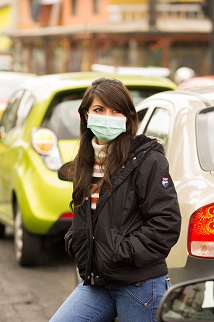Air pollution and climate change – a vicious circle

date: 15/12/2015
Project: Effects of Climate Change on Air Polluti...
acronym: ECLAIRE
See also: CORDIS
Until ECLAIRE’s research, the interplay between air pollutants and global warming was not well understood, leading to uncertainty in projections on the future effects of both environmental challenges.
The project, which completed in September 2015, has significantly closed that gap in knowledge, specifically on the role of ground-level ozone (O3) and nitrogen deposition, which results from ammonia (NH3) and nitrogen oxides (NOx) emissions.
The research indicates that global warming would worsen the harmful impacts of nitrogen pollution and ground-level O3 on natural habitats, plants and crops, says project coordinator Mark Sutton of the Natural Environment Research Council in the UK.
The project found that the interaction of these impacts would lead to the release into the air of additional NH3 and NOx, along with volatile organic compounds (VOCs), while worsening emissions of nitrous oxide (N2O), a powerful greenhouse gas.
That’s not good news. O3, which is harmful to plant growth, is also a greenhouse gas. O3 is produced by a chemical interaction between NOx and VOCs in the atmosphere. More NOx and VOCs mean more O3 – risking a knock-on effect on plants and global warming, says Sutton.
“One of the key interactions we found was that O3 reduces the efficiency with which nitrogen fertilizers are used. This risks increasing both N2O emissions and water pollution. It’s a double-whammy effect for air pollution and climate change,” he says.
“We have also identified additional complexities that need to be considered. We expect that future increases in CO2 will partly offset the VOC effect, while extra NH3 and NOx emissions will contribute more particulate matter (PM), posing a threat to human health.”
The data produced by ECLAIRE will help inform decision-making and political priorities on air pollution and climate change at the EU, national, and international levels.
Currently, the project’s data are feeding into current EU proposals on revising limits for air pollutant emissions. ECLAIRE’s researchers are also providing advice to EU and national policymakers on the UNECE Convention on Long-Range Transboundary Air Pollution, an international agreement to limit emissions of air pollutants.
“We can expect to see ECLAIRE results informing negotiations for air pollution, climate change and water pollution for several years ahead,” Sutton adds.
